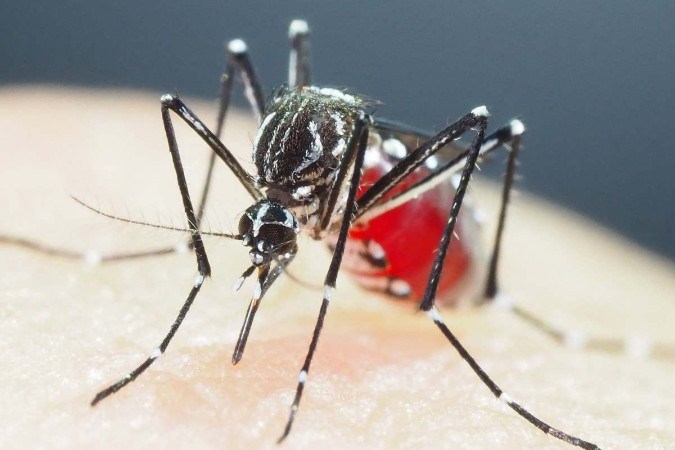 |
|
| Photo: Shinji Kasai/Courtesy of Shinji Kasai/AFP |
The mosquitoes that transmit dengue and other viral diseases have developed high resistance to insecticides in some regions of Asia, so new ways to stop their spread are urgently needed – according to a recently published Japanese study.
The use of insecticides in mosquito-infested areas is a common practice in tropical and subtropical regions. Resistance was indeed a concern, but the exact scale of the problem was not yet known.
Japanese scientist Shinji Kasai and his team studied mosquitoes from several Asian countries and Ghana and noticed genetic mutations that make some mosquitoes immune to widely used insecticides, such as permethrin.
“In Cambodia, more than 90% of the Aedes aegypti mosquitoes, the main vectors of dengue, Zika, chikungunya and yellow fever viruses, have a set of mutations that lead to a very high level of resistance,” Kasai explained in an interview with AFP.
The director of the Department of Medical Entomology at the National Institute of Infectious Diseases in Japan found that some mosquito species, which must be 100% eradicated with insecticides, do not exceed 7%.
Even a ten times more toxic dose killed only 30%. Resistance levels vary by region.
“They are very different” between Cambodia and Vietnam, for example, Kasai details. Their work also revealed that pesticides found in Ghana and parts of Indonesia and Taiwan still work today.
Resistance to insecticides has also been observed in the ‘tiger mosquito’ (Aedes albopictus), though to a lesser extent.
New methods of protection
This study, published at the end of December in the journal Science Advances, shows that “commonly used strategies may not be effective” in controlling populations of harmful mosquitoes, Professor Cameron Webb, an expert at the University of Sydney, said in an interview with Agence France-Presse.
New chemicals are needed, but policymakers and scientists must also consider new methods of protection, such as vaccines, Webb points out.
There are currently only a few dengue vaccines available. That the Japanese drug group Takeda was approved last year by Indonesia, and then by the European Union, while the use of the vaccine by the French Sanofi group is very limited, because it can lead to an exacerbation of the disease in people who have never been infected with this virus. .
According to the World Health Organization (WHO), dengue cases have increased dramatically worldwide over the past 20 years, with between 100 and 400 million infections annually. More than 80% of cases are mild or asymptomatic, but there are life-threatening complications.
Kasai, who fears that the highly resistant mosquitoes he identified will spread to other parts of the world “in the near future,” also recommends that insecticides vary more, but the problem is that their methods of action are often similar.
The alternatives are to intensify efforts to eliminate the breeding areas of these insects, or to sterilize male mosquitoes using Wolbachia bacteria, which is an innovative method that has already given encouraging results at the local level.
Where and when the insecticide-resistant mutations appeared in mosquitoes remains a mystery.
Kasai is now expanding his research to other regions in Asia, and is also looking at more recent samples from Cambodia and Vietnam to see if anything has changed, compared to his previous study, which covered the period 2016-2019.

“Wannabe internet buff. Future teen idol. Hardcore zombie guru. Gamer. Avid creator. Entrepreneur. Bacon ninja.”
